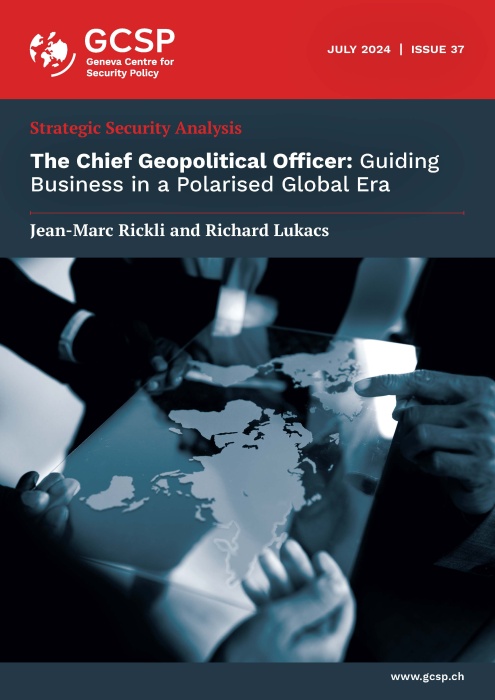©Rawpixel, Envato Elements
The Chief Geopolitical Officer: Guiding Business in a Polarised Global Era
01 July 2024
Key points
- The influence of geopolitics increasingly permeates every facet of business activities, shaping business organisations’ daily operations and requiring the development and effective deployment of strategic foresight as a key mechanism to manage with this influence.
- Growing polarisation and the ever-increasing complexity of the international system are forcing companies to develop an understanding of geopolitical developments, which present at least six different types of risks for businesses: operational, reputational, financial, security, and those related to market access and sanctions compliance. Geopolitical disruption can also lead to a seventh type of risk for some businesses: existential risk.
- Amid an array of executive roles designed to tackle specific challenges, instituting a position of chief geopolitical officer (CGO) would significantly elevate a business organisation’s comprehension of the profound impact that geopolitical dynamics have on its daily operations and longer-term strategy.
- The CGO position should be on par with other C-suite roles such as chief risk officer and chief security officer.
- The CGO’s portfolio should focus primarily on international affairs and strategic foresight and anticipation rather than the economic or financial aspects of a business.
- The CGO should also develop communication channels and maintain a network of high-level relations with key officials from government and international and non-governmental organisations.
Disclamer: The views, information and opinions expressed in this publication are the authors’ own and do not necessarily reflect those of the GCSP or the members of its Foundation Council. The GCSP is not responsible for the accuracy of the information.



